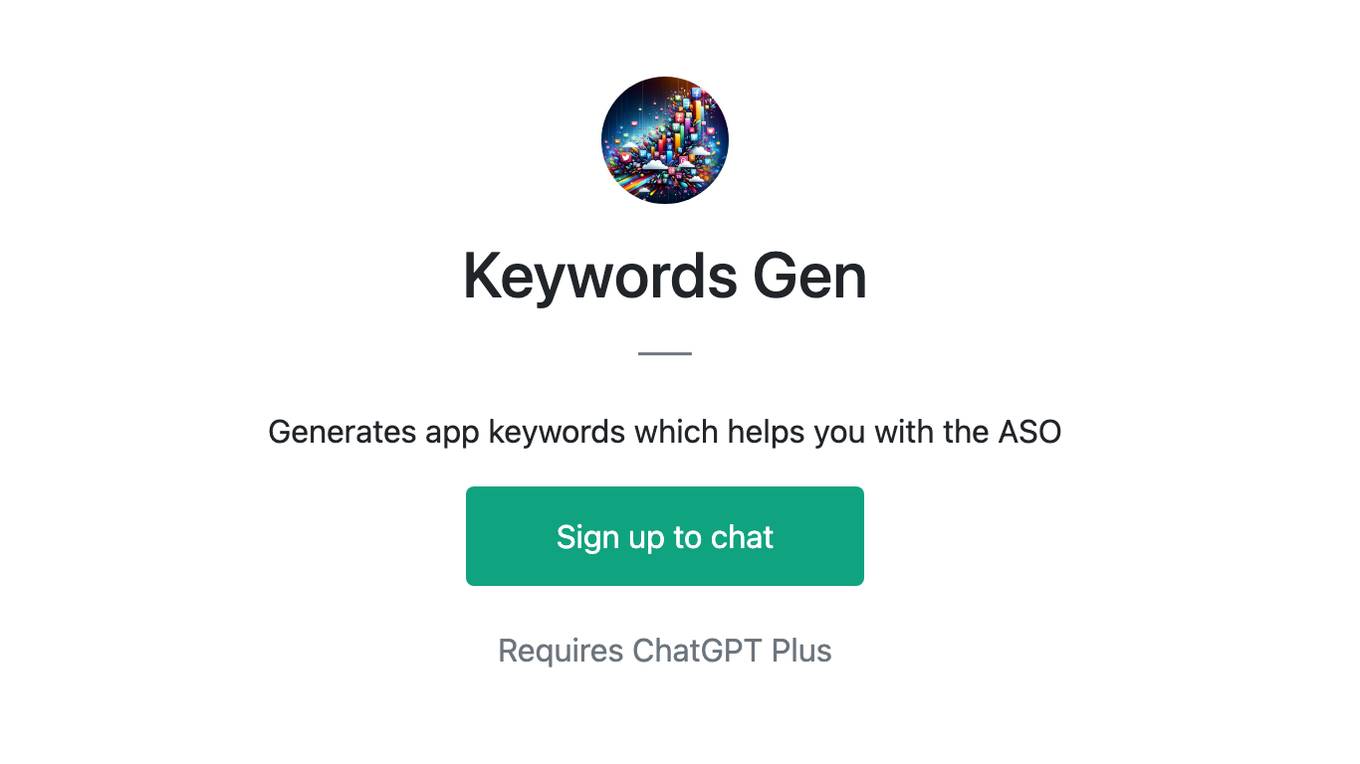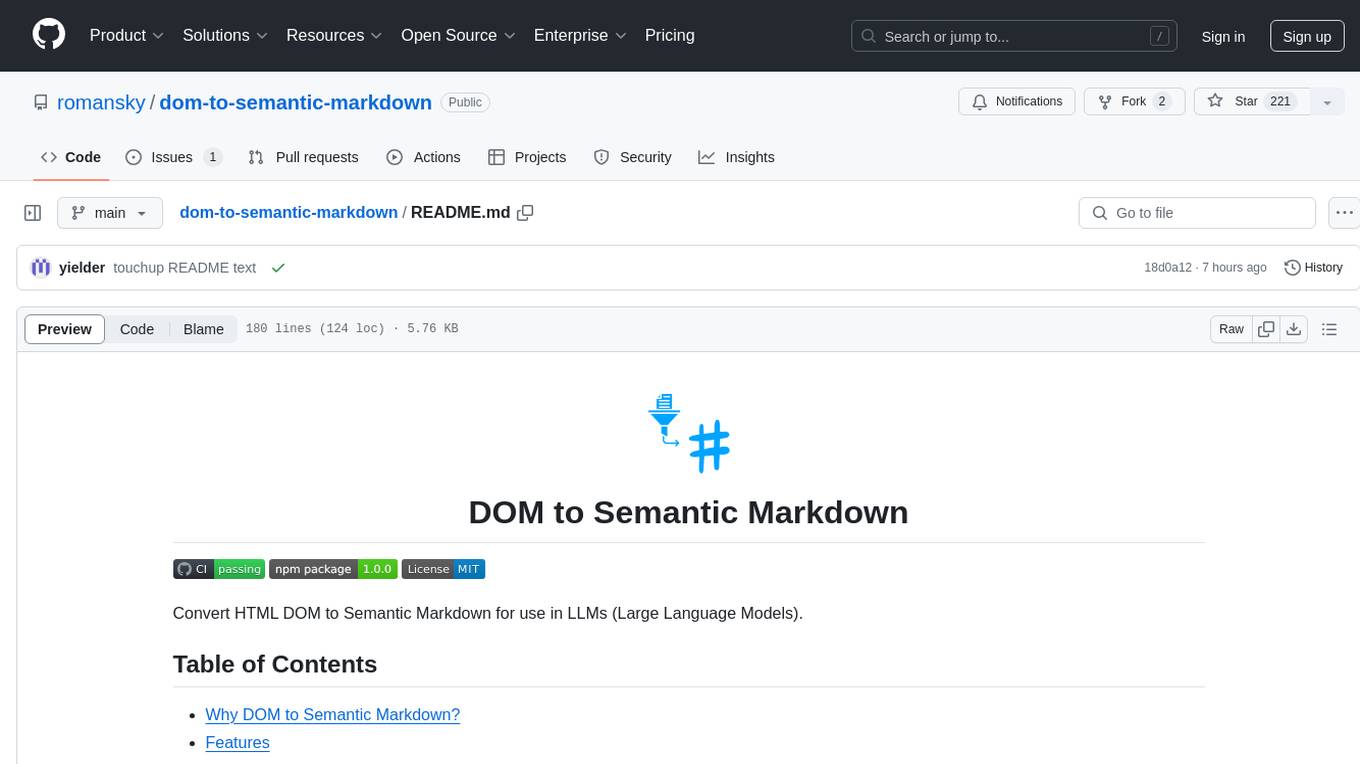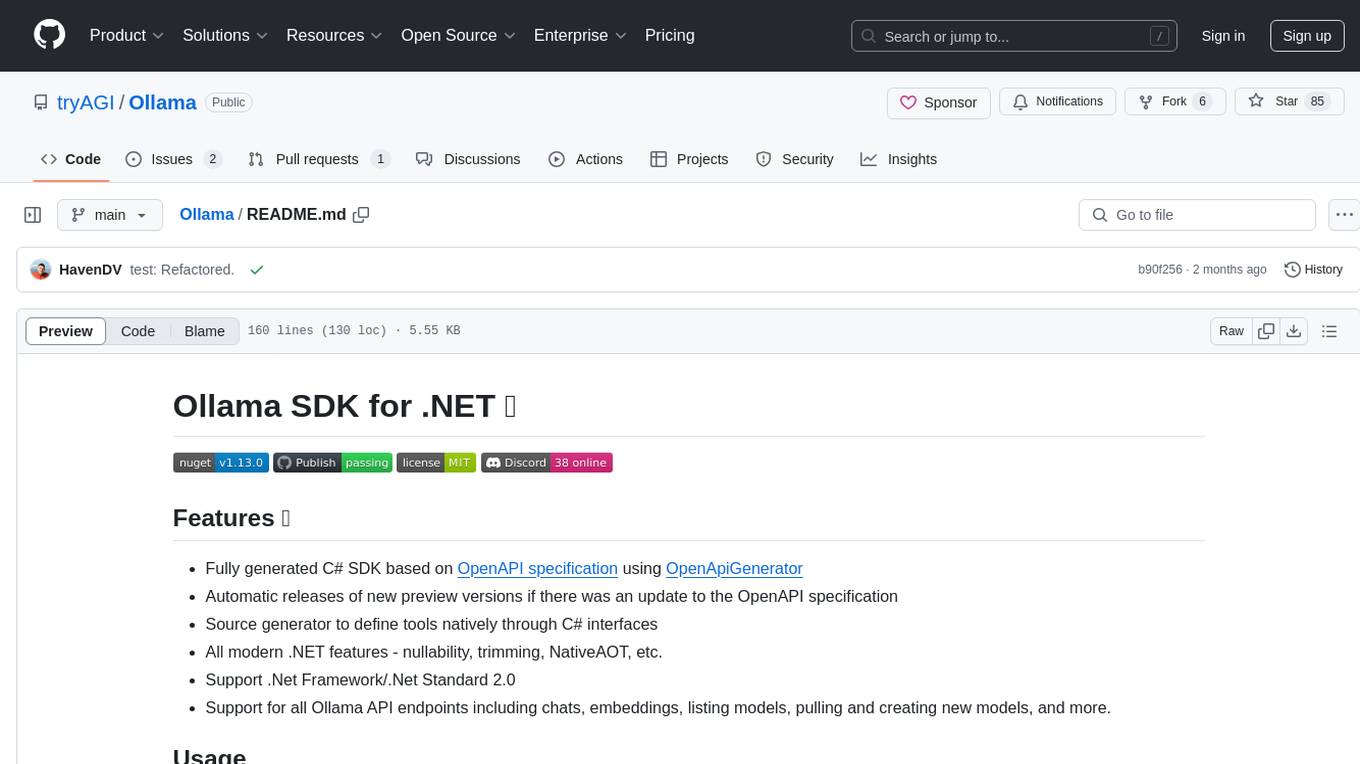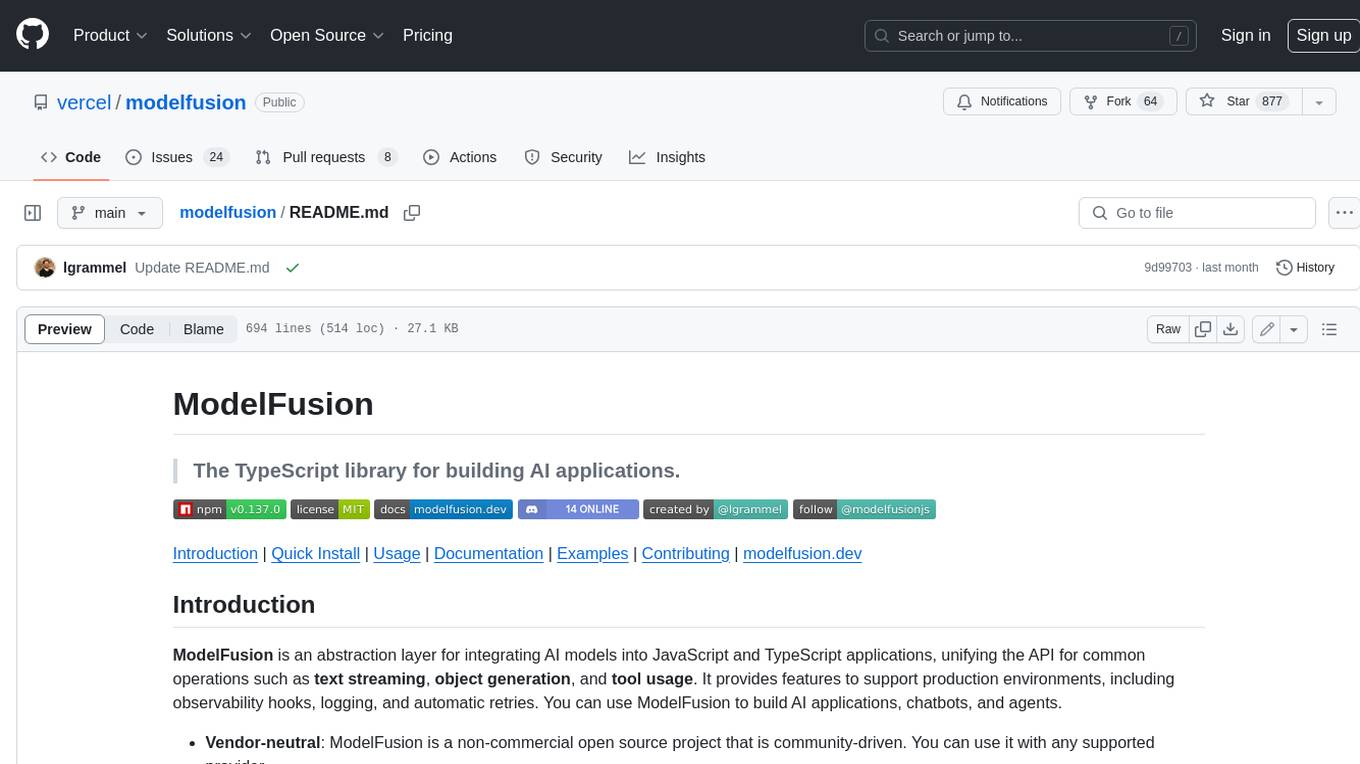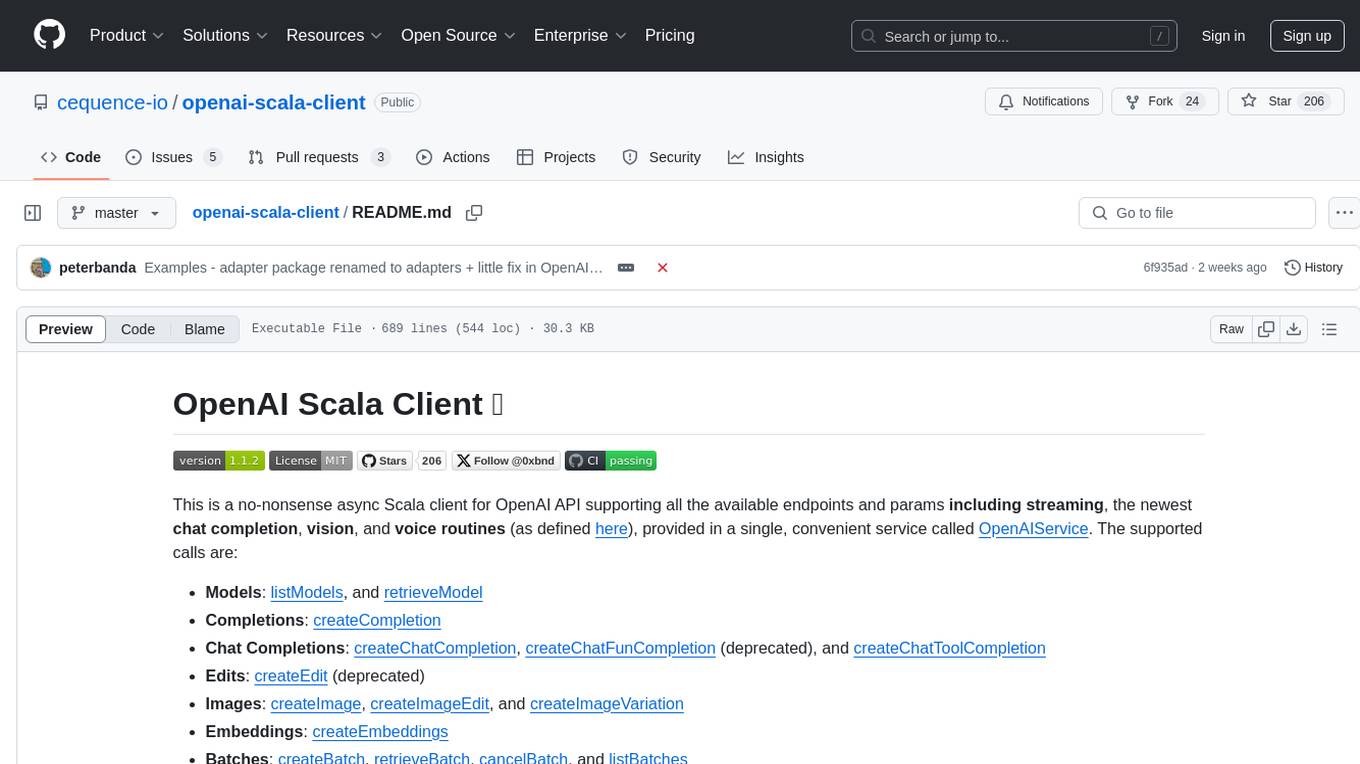AI tools for Aso
Related Jobs:
Related Tools:
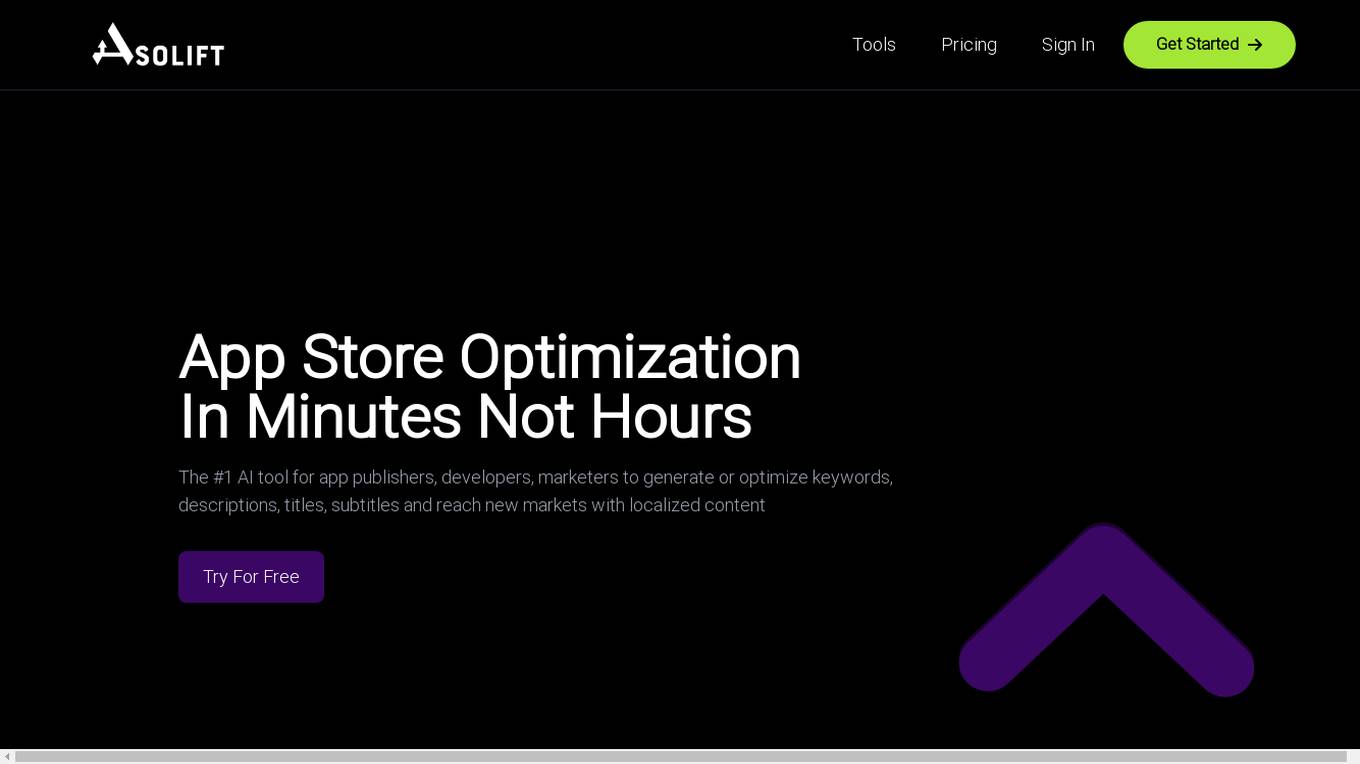
AsoLift
AsoLift is the #1 AI tool for app publishers, developers, and marketers to optimize keywords, descriptions, titles, subtitles, and localize content in app store optimization. It offers a suite of tools powered by AI technology to boost app downloads, improve app visibility, and increase global reach. Users can easily generate or optimize various elements of their app listings with the help of AI algorithms, leading to enhanced app store rankings and revenue. AsoLift simplifies the process of finding impactful keywords, crafting ASO-friendly descriptions, and setting optimized prices, giving users a competitive edge in the app market.
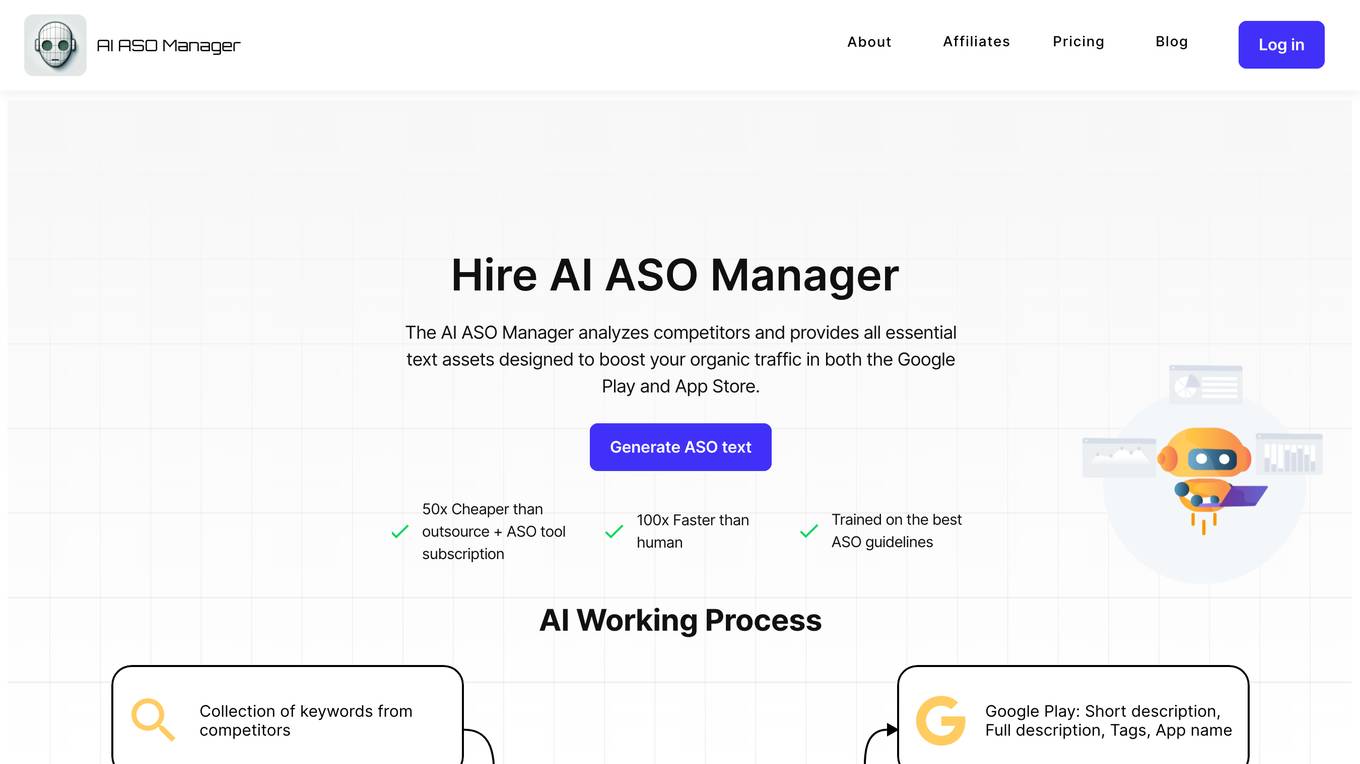
AI ASO Manager
AI ASO Manager is an AI-powered tool designed to optimize App Store Optimization (ASO) for mobile applications. It analyzes competitors, generates essential text assets, and translates them into multiple languages to increase organic traffic on Google Play and App Store. The tool follows advanced ASO guidelines, provides instant results, and offers competitor analysis to enhance app visibility and user acquisition.
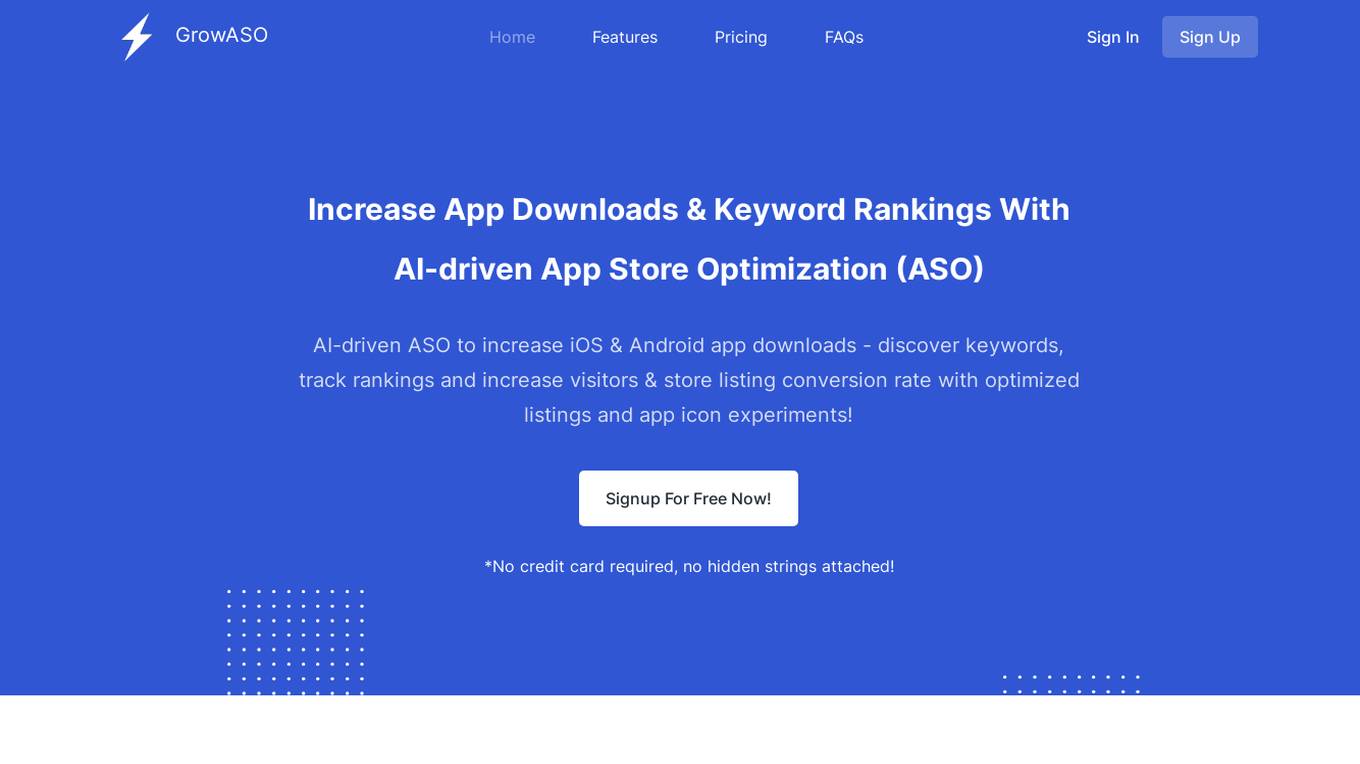
GrowASO
GrowASO is an AI-driven App Store Optimization (ASO) platform that helps app developers and marketers increase their app downloads, revenue, and rankings. It offers a range of features including AI-powered app listing optimization, app icon experiments, keyword traffic and difficulty estimates, keyword rank tracking, and competitor analysis. GrowASO supports both iOS and Android apps and provides cross-platform optimization.
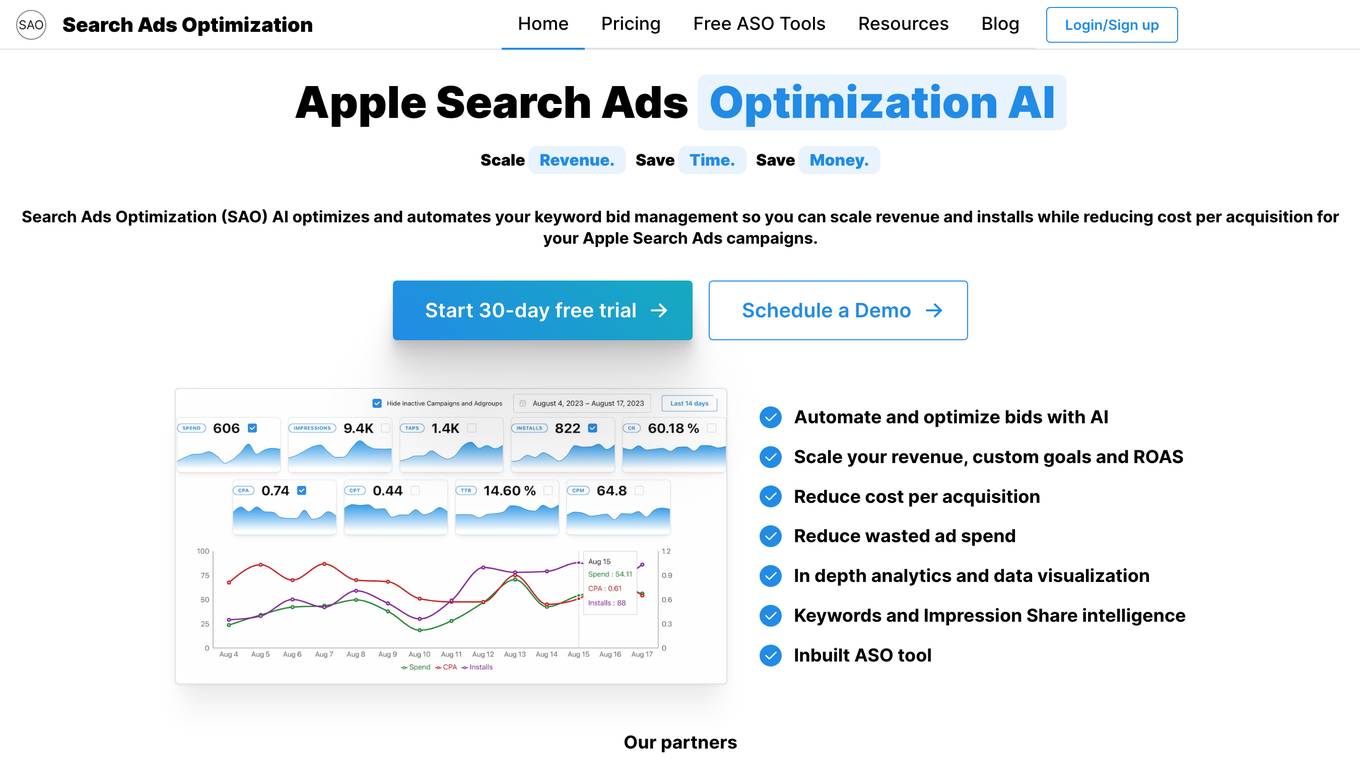
Search Ads Optimization (SAO)
Search Ads Optimization (SAO) is an AI optimization platform designed for Apple Search Ads. It offers advanced automation and optimization features to help users scale revenue, save time, and optimize costs. SAO leverages AI technology to manage campaign and keyword bids efficiently, leading to improved performance and reduced cost per acquisition for Apple Search Ads campaigns. The platform is trusted by app companies worldwide and provides in-depth analytics, data visualization, and post-install attribution capabilities.
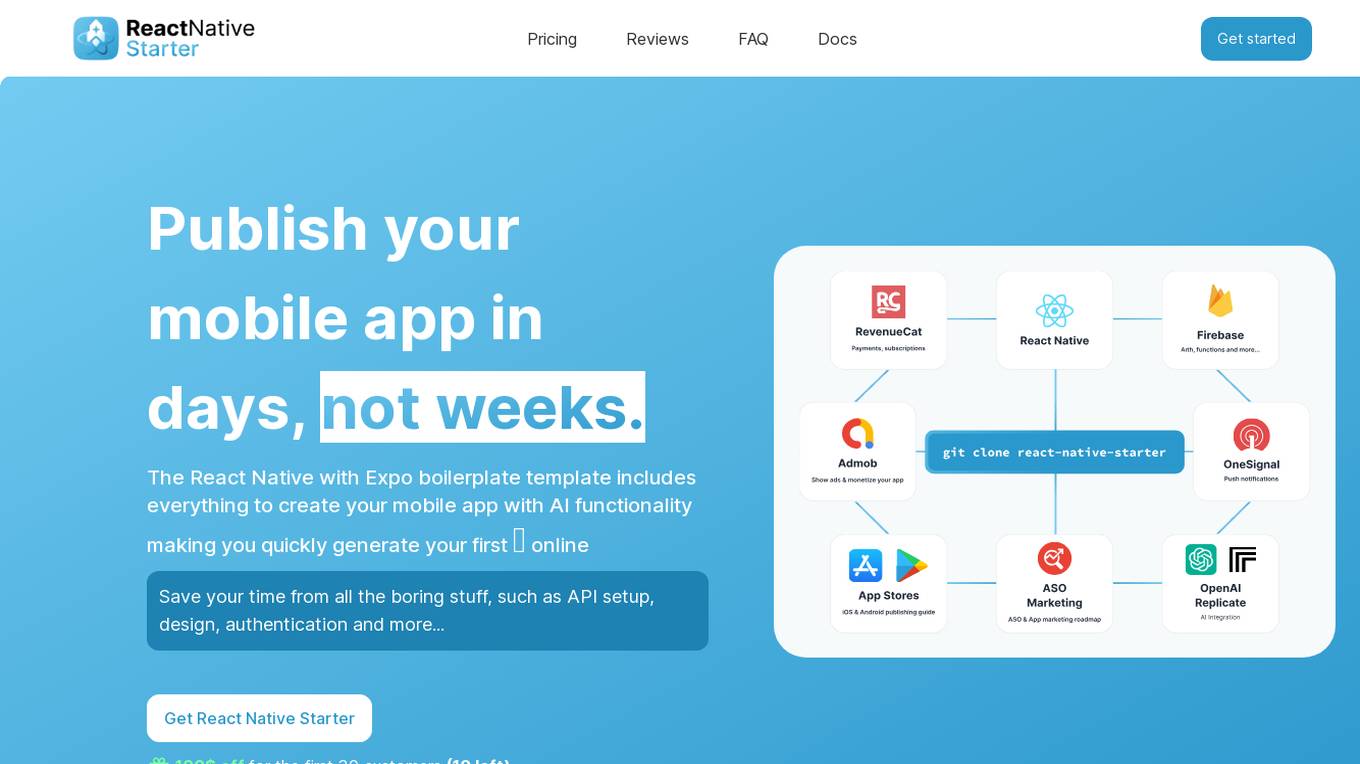
React Native Starter AI
React Native Starter AI is an all-in-one development kit designed to help users quickly launch their mobile apps with AI functionality. The boilerplate template includes integrations such as AI tools, Firebase functions, analytics, authentication, in-app purchases, and more. It aims to save developers time by providing pre-built components and screens for building AI mobile applications. With React Native Starter AI, users can easily customize and publish their apps on mobile app stores, catering to both beginner and experienced developers.

CALA
CALA is a leading fashion platform that unifies design, development, production, and logistics into a single, digital platform. It provides tools and support to automate and optimize the supply chain from start to finish. CALA also offers a network of designers and suppliers, as well as AI-powered design tools to help generate moodboards, fresh ideas, and more.
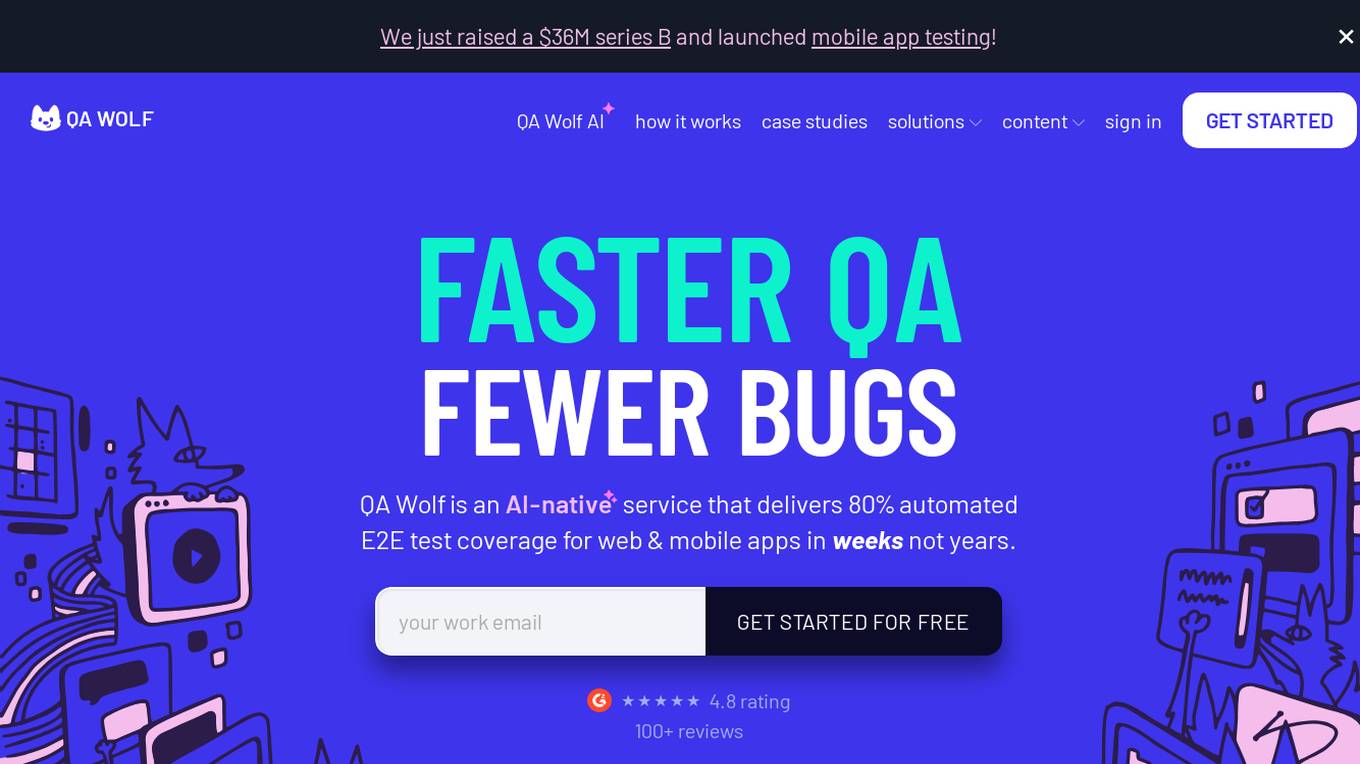
QA Wolf
QA Wolf is an AI-native service that delivers 80% automated end-to-end test coverage for web and mobile apps in weeks, not years. It automates hundreds of tests using Playwright code for web and Appium for mobile, providing reliable test results on every run. With features like 100% parallel run infrastructure, zero flake guarantee, and unlimited test runs, QA Wolf aims to help software teams ship better software faster by taking QA completely off their plate.

ASOSERVICE MOBILE APPLICATION PROMOTION CO., LTD
ASOSERVICE MOBILE APPLICATION PROMOTION CO., LTD is a premier global entity specializing in promoting Android, iOS, and macOS applications. Website: https://asoservice.com/

Brazilian Constitution
A Brazilian Constitution agent specialized and deeply knowledgeable about the Brazilian Constitution and related legal frameworks.
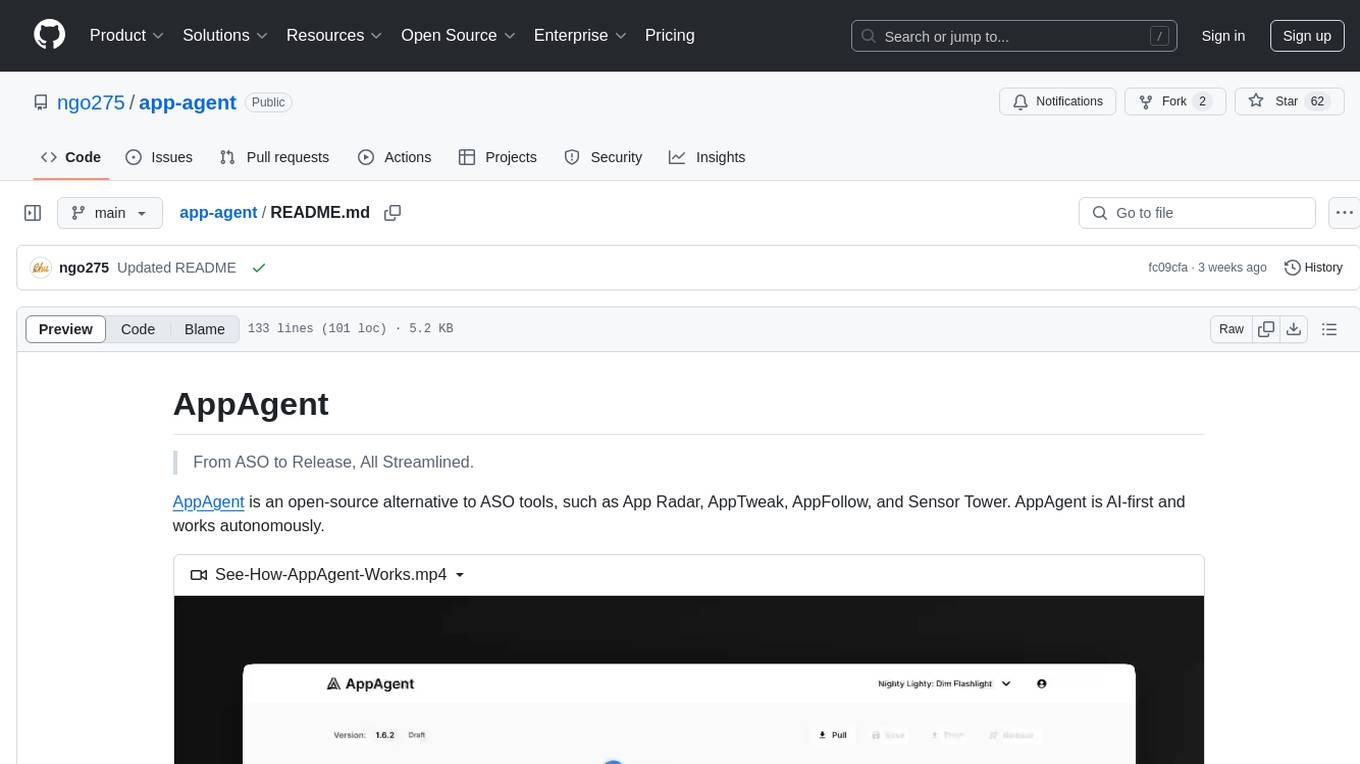
app-agent
AppAgent is an open-source AI-first platform designed to streamline the app release process, from autonomous keyword research to ASO content generation. It offers features like autonomous keyword research, AI-powered store optimization, store synchronization with App Store Connect, and upcoming keyword tracking with self-healing. The tech stack includes Next.js, TypeScript, Tailwind CSS, Prisma ORM, PostgreSQL, NextAuth.js, PostHog, Resend, Stripe, and Vercel for hosting. Users can clone the repository, set up environment variables, install dependencies, set up the database, and run the development server to start using the tool.
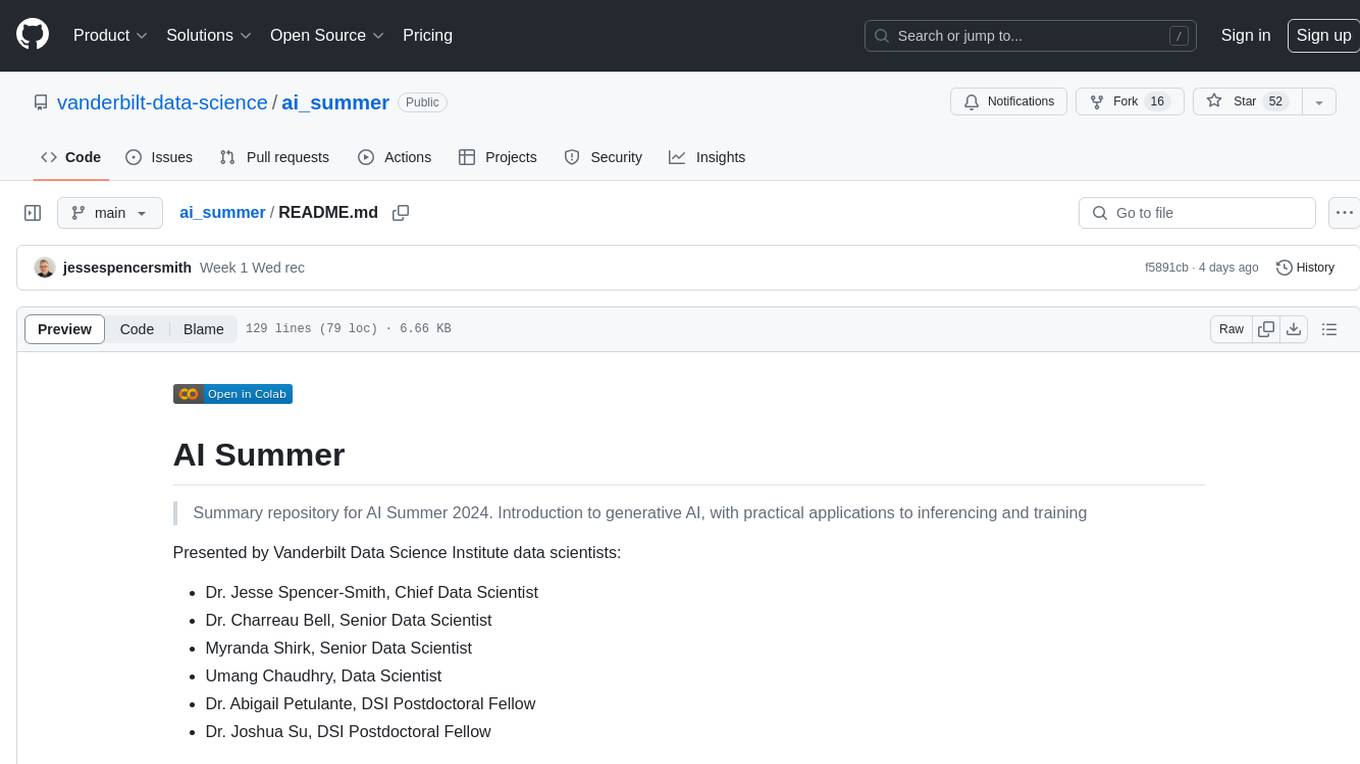
ai_summer
AI Summer is a repository focused on providing workshops and resources for developing foundational skills in generative AI models and transformer models. The repository offers practical applications for inferencing and training, with a specific emphasis on understanding and utilizing advanced AI chat models like BingGPT. Participants are encouraged to engage in interactive programming environments, decide on projects to work on, and actively participate in discussions and breakout rooms. The workshops cover topics such as generative AI models, retrieval-augmented generation, building AI solutions, and fine-tuning models. The goal is to equip individuals with the necessary skills to work with AI technologies effectively and securely, both locally and in the cloud.
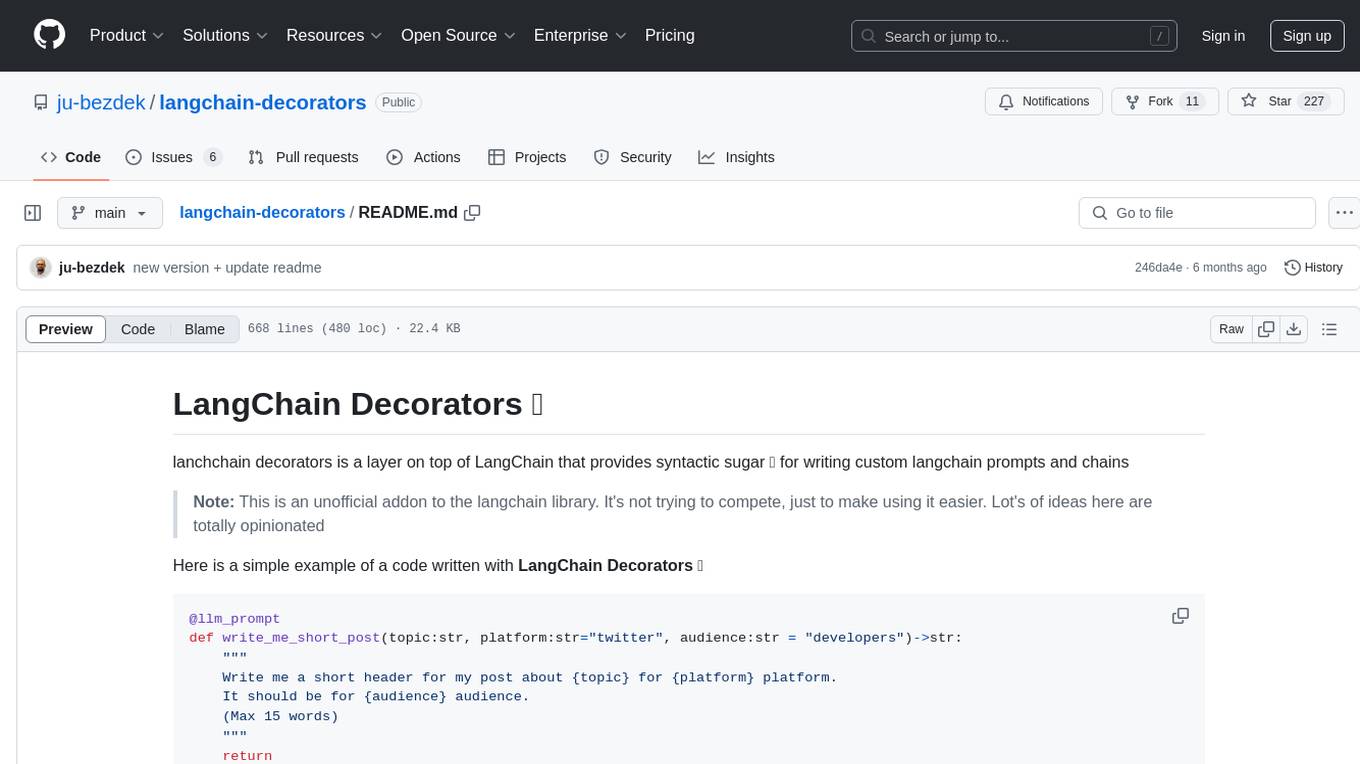
langchain-decorators
LangChain Decorators is a layer on top of LangChain that provides syntactic sugar for writing custom langchain prompts and chains. It offers a more pythonic way of writing code, multiline prompts without breaking code flow, IDE support for hinting and type checking, leveraging LangChain ecosystem, support for optional parameters, and sharing parameters between prompts. It simplifies streaming, automatic LLM selection, defining custom settings, debugging, and passing memory, callback, stop, etc. It also provides functions provider, dynamic function schemas, binding prompts to objects, defining custom settings, and debugging options. The project aims to enhance the LangChain library by making it easier to use and more efficient for writing custom prompts and chains.
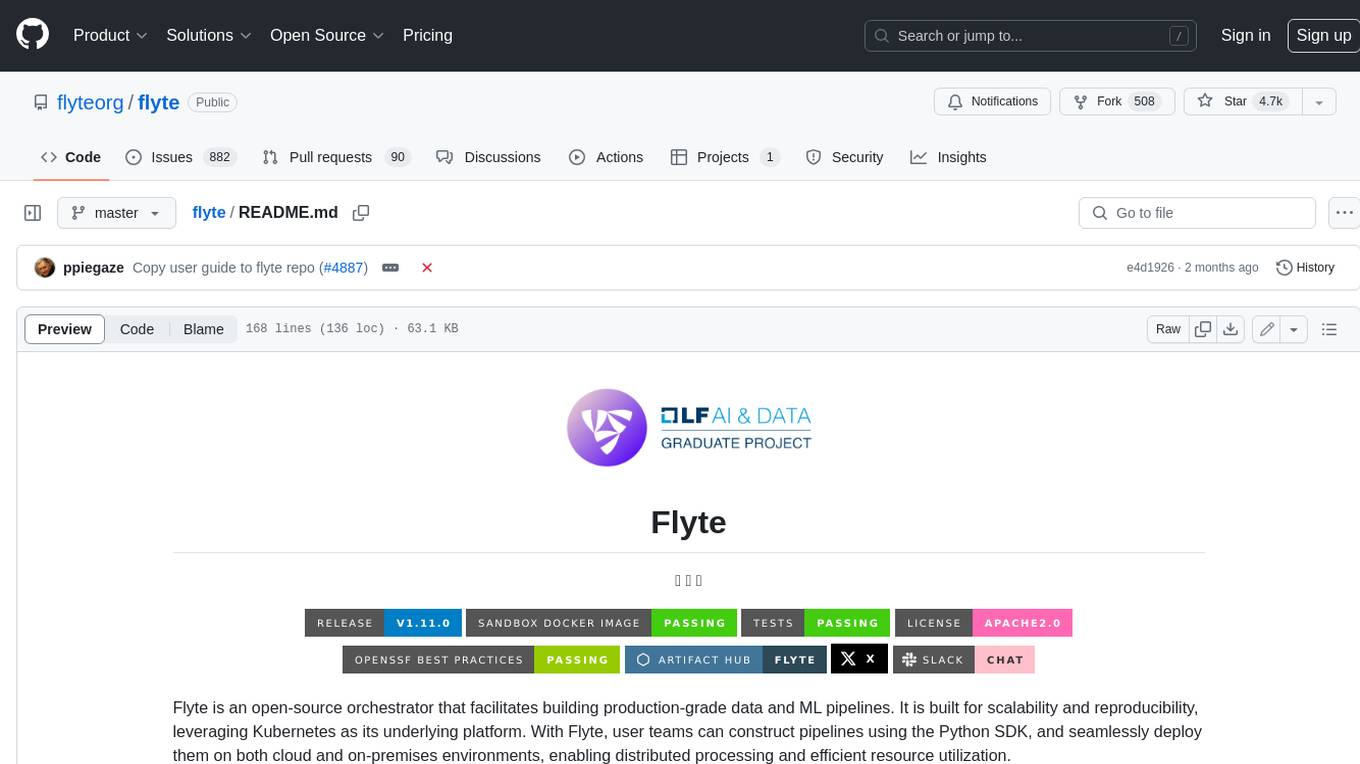
flyte
Flyte is an open-source orchestrator that facilitates building production-grade data and ML pipelines. It is built for scalability and reproducibility, leveraging Kubernetes as its underlying platform. With Flyte, user teams can construct pipelines using the Python SDK, and seamlessly deploy them on both cloud and on-premises environments, enabling distributed processing and efficient resource utilization.
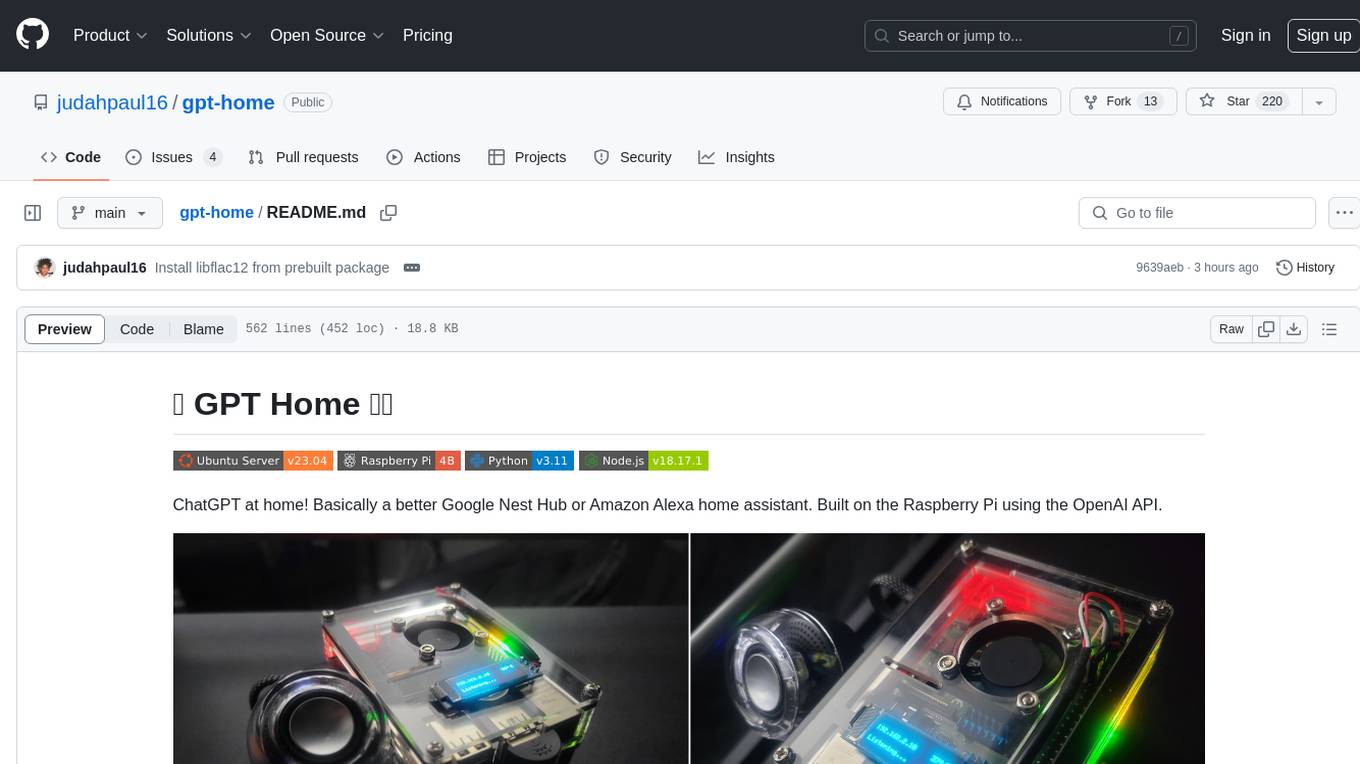
gpt-home
GPT Home is a project that allows users to build their own home assistant using Raspberry Pi and OpenAI API. It serves as a guide for setting up a smart home assistant similar to Google Nest Hub or Amazon Alexa. The project integrates various components like OpenAI, Spotify, Philips Hue, and OpenWeatherMap to provide a personalized home assistant experience. Users can follow the detailed instructions provided to build their own version of the home assistant on Raspberry Pi, with optional components for customization. The project also includes system configurations, dependencies installation, and setup scripts for easy deployment. Overall, GPT Home offers a DIY solution for creating a smart home assistant using Raspberry Pi and OpenAI technology.
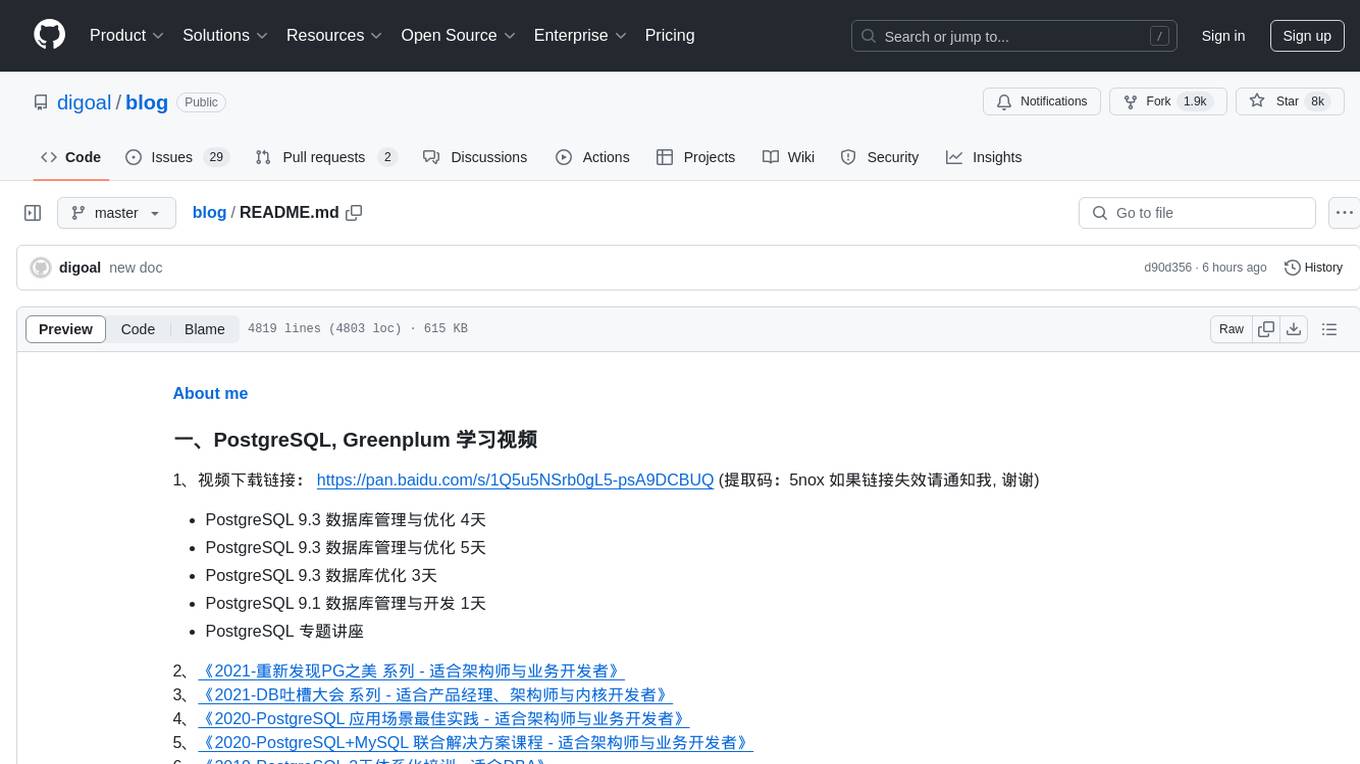
blog
This repository contains a simple blog application built using Python and Flask framework. It allows users to create, read, update, and delete blog posts. The application uses SQLite database for storing blog data and provides a basic user interface for interacting with the blog. The code is well-organized and easy to understand, making it suitable for beginners looking to learn web development with Python and Flask.
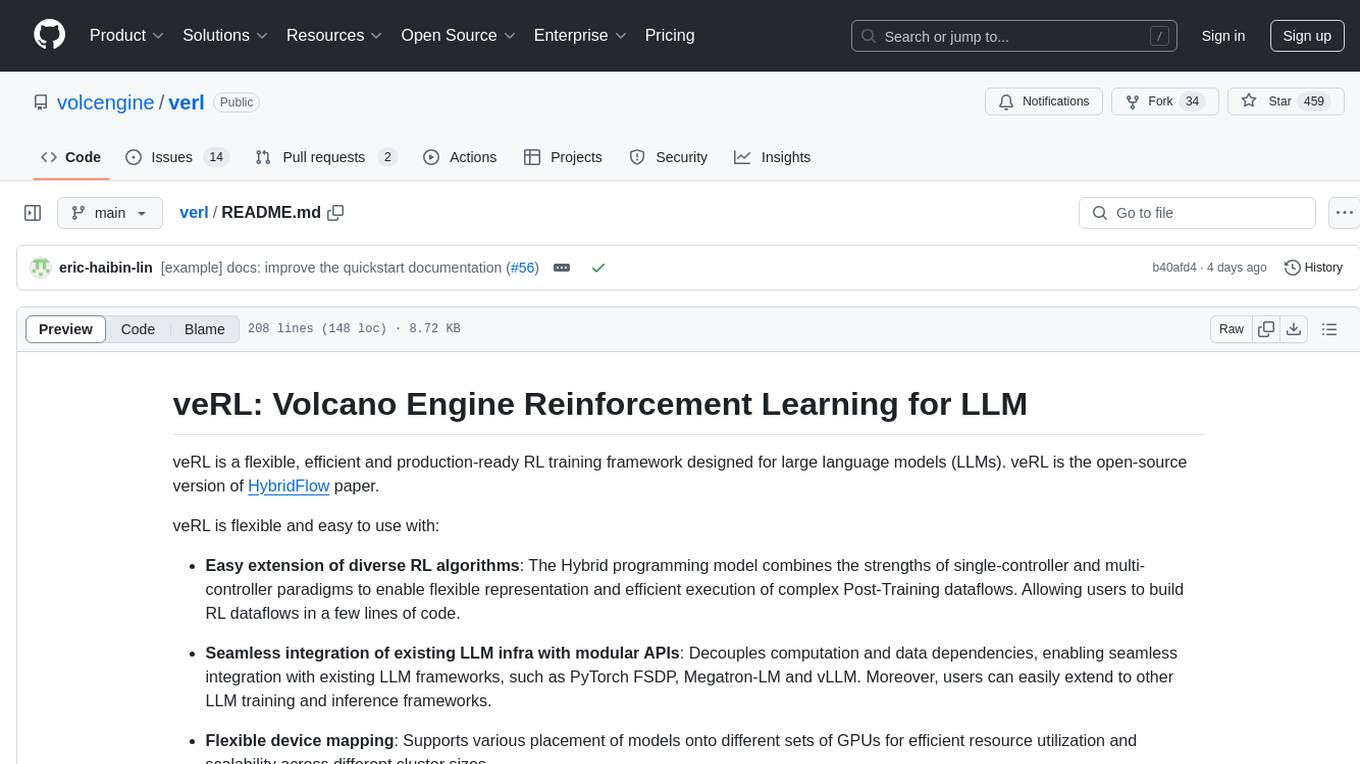
verl
veRL is a flexible and efficient reinforcement learning training framework designed for large language models (LLMs). It allows easy extension of diverse RL algorithms, seamless integration with existing LLM infrastructures, and flexible device mapping. The framework achieves state-of-the-art throughput and efficient actor model resharding with 3D-HybridEngine. It supports popular HuggingFace models and is suitable for users working with PyTorch FSDP, Megatron-LM, and vLLM backends.
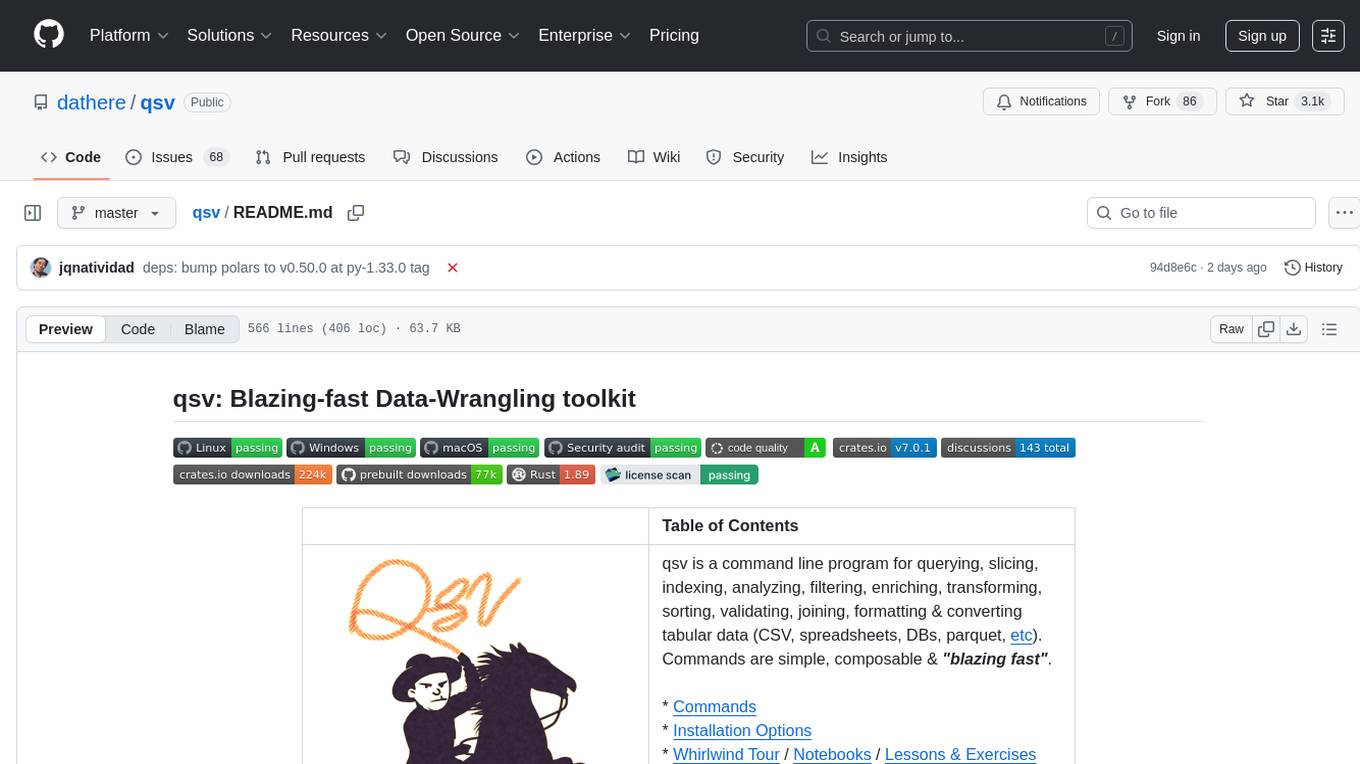
qsv
qsv is a command line program for querying, slicing, indexing, analyzing, filtering, enriching, transforming, sorting, validating, joining, formatting & converting tabular data (CSV, spreadsheets, DBs, parquet, etc). Commands are simple, composable & 'blazing fast'. It is a blazing-fast data-wrangling toolkit with a focus on speed, processing very large files, and being a complete data-wrangling toolkit. It is designed to be portable, easy to use, secure, and easy to contribute to. qsv follows the RFC 4180 CSV standard, requires UTF-8 encoding, and supports various file formats. It has extensive shell completion support, automatic compression/decompression using Snappy, and supports environment variables and dotenv files. qsv has a comprehensive test suite and is dual-licensed under MIT or the UNLICENSE.
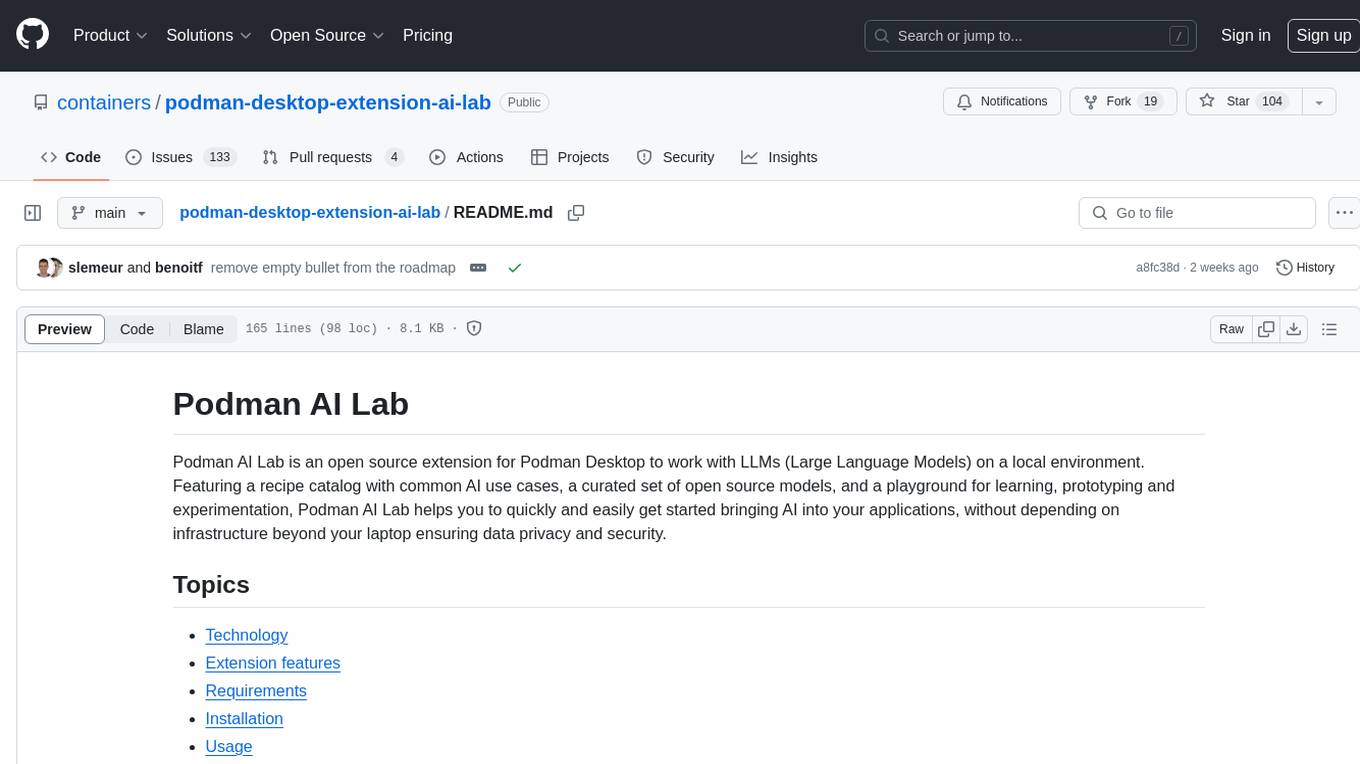
podman-desktop-extension-ai-lab
Podman AI Lab is an open source extension for Podman Desktop designed to work with Large Language Models (LLMs) on a local environment. It features a recipe catalog with common AI use cases, a curated set of open source models, and a playground for learning, prototyping, and experimentation. Users can quickly and easily get started bringing AI into their applications without depending on external infrastructure, ensuring data privacy and security.

torchchat
torchchat is a codebase showcasing the ability to run large language models (LLMs) seamlessly. It allows running LLMs using Python in various environments such as desktop, server, iOS, and Android. The tool supports running models via PyTorch, chatting, generating text, running chat in the browser, and running models on desktop/server without Python. It also provides features like AOT Inductor for faster execution, running in C++ using the runner, and deploying and running on iOS and Android. The tool supports popular hardware and OS including Linux, Mac OS, Android, and iOS, with various data types and execution modes available.
